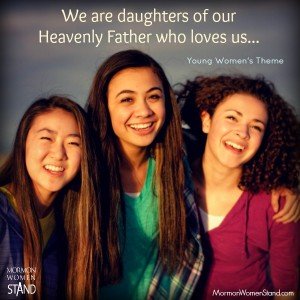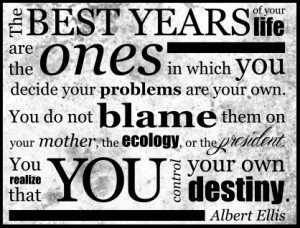I was asked to speak in my ward on Sunday for Mother’s Day. I actually like pubic speaking and enjoy preparing talks. However, this talk was particularly hard to write. All week I felt the pressure to be perfect and to give a perfect talk or risk offending someone in the ward. Throw in some social media drama (not of my making) and I was on my way to a nervous breakdown by Saturday night. I prayed a lot to try and find some peace and I had a break through on what to talk about and how to say it. “Just testify of the gospel and share your testimony for the uplifting of the sisters in your ward who are struggling with heavy burdens.”
Tag Archives: women
What Mormon Women Want
 The world always clamors for our attention. As covenant women, we have to be diligent with how we spend our time and the things we work for and involve ourselves in. In order to stir up contention and to divide us, individuals, the media, and social groups engage in divisiveness and the politics of destruction to get Latter-day Saint women to contend with each other. So I asked over 100 friends and acquaintances what Mormon women want. Is it material things, or mostly things of a deeper nature? Although, I will not argue with my friend who said she’d like a nap and someone else to pick up the house once in a while, most of my friends indicated that they want spiritually lasting things over the things of this world.
The world always clamors for our attention. As covenant women, we have to be diligent with how we spend our time and the things we work for and involve ourselves in. In order to stir up contention and to divide us, individuals, the media, and social groups engage in divisiveness and the politics of destruction to get Latter-day Saint women to contend with each other. So I asked over 100 friends and acquaintances what Mormon women want. Is it material things, or mostly things of a deeper nature? Although, I will not argue with my friend who said she’d like a nap and someone else to pick up the house once in a while, most of my friends indicated that they want spiritually lasting things over the things of this world.
So how do we do this? How do we obtain those spiritual, long lasting, eternal wants? And most importantly, what will we do about it?
The first idea, and the one that was most expressed by my friends, was the desire to be better at building Zion. Several said they felt like this could be accomplished if we ministered to each other better without excuses. I remember a few years ago our ward’s Relief Society President gave a presentation during class about turning Visiting Teaching into an opportunity to minister to each other, as Christ ministered to others. It was so revolutionary to me to think of Visiting Teaching in this way. Because the Lord establishes patterns for us to follow, learning to recognize and follow the pattern of Christlike ministering is something that everyone should strive for.
How did Christ minister to people? First, he saw them as they really were. He was and is able to do that, because he knew us before we were born. He knows us by name as we are here on earth, and he suffered and atoned for us in Gethsemane. Do you believe the words of Alma when he said, “…and he will take upon him their infirmities, that his bowels may be filled with mercy, according to the flesh, that he may know according to the flesh how to succor his people according to their infirmities” (see Alma 7: 11-12). We succor people as we try to see them as they truly are – as Christ sees them. Yes, some people have very rough edges, but sometimes those are the people that need us the most.
Read more at Mormon Women Stand
Our Young Men Are Leaving the Church
A prevalent argument has formed that women and girls are leaving the Church in droves. The implication is that more women are leaving than men and in historic numbers. All of this is based on anecdotal observation without much actual evidence. Regardless of the actual situation, other equally valid anecdotal based observations can argue that men are still far more likely to leave or not ever join the Church than women. This is not unique to Mormonism according to studies of religious organizations.
Why are men most likely to drop or reject religion? The studies do not really answer that question any more than why women might. In fact, more women remain a part of religious institutions then men. The doesn’t sound correct if feminists are right in the assumptions that traditional religions are oppressive patriarchies. Islam is one of the only major religions where men are more likely to join and participate, but it is an exception and not the rule.
The suggestions of possible reasons are mine alone. They are also theoretical from lifelong participation. Because of the general nature of the subject, stereotypes are present for a wider discussion. Although I never left the Church or intend to anytime soon to give personal examples, there remains a lifetime of experience as a male member. My friends were male, my religious associates were male, and I was raised with brothers and sisters. Some of the acquaintances I have known continue in the faith. Others drifted away like so many. Continue reading
The LDS Church Responds to Criticism and Details Efforts to Reach Out to Women

The Millennial Star has received the following letter from the Public Affairs department of The Church of Jesus Christ of Latter-day Saints entitled “Context Missing From Discussion About Women”.
The letter, written by Michael Otterson, Managing Director of Public Affairs, responds to recent criticisms from bloggers and explains and clarifies the Church’s efforts to reach out to LDS women and to listen to their ideas and concerns. It also clarifies the role of Public Affairs and their supervision by the highest authorities of the church.
Letter: Context Missing From Discussion About Women (PDF Document)
Text of the letter follows:
Context missing from discussion about women
Comments on various blogs over recent months about what Church leaders
should or should not think and do about women’s roles in The Church of Jesus
Christ of Latter-day Saints prompt me to provide some context from an insider
perspective that may be helpful.
Power of the Priesthood
 Unlike many, I don’t believe that a patriarchal priesthood creates a power imbalance that leads to gendered injustices, such as domestic violence. I don’t think it is necessary to give women the priesthood or adopt identical family roles. Yet, though I don’t believe they are cause-and-effect, these things do play into a power dynamic that exists independently. I believe this power dynamic can be changed if we are willing. I realize that in a few short sentences, I have managed to alienate both sides of the divide. But I think my perspective, as a woman faithful in the Church and a survivor of domestic violence, has something to add to the conversation.
Unlike many, I don’t believe that a patriarchal priesthood creates a power imbalance that leads to gendered injustices, such as domestic violence. I don’t think it is necessary to give women the priesthood or adopt identical family roles. Yet, though I don’t believe they are cause-and-effect, these things do play into a power dynamic that exists independently. I believe this power dynamic can be changed if we are willing. I realize that in a few short sentences, I have managed to alienate both sides of the divide. But I think my perspective, as a woman faithful in the Church and a survivor of domestic violence, has something to add to the conversation.
My husband was not a member of the Church when I met him. I was a freshly-returned missionary, he was separated from his wife. We both worked at the same retail store. At some point, I invited him to hear the discussions in my parents’ home. During the course of his investigation, he confessed to me many problems in his past and present. Still stuck somewhat in the role of missionary, it was easy to forgive things that I would not have, had I been looking at him as a potential future mate. I think that’s why he was able to get to me.
